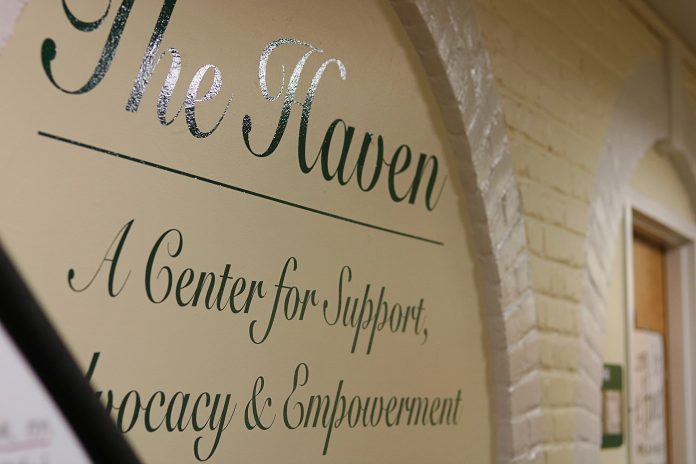The Haven, the College of William and Mary’s primary support and advocacy network for survivors of sexual assault, announced its renewed partnership with the Student Health Center to remove logistical barriers to free emergency contraception.
Similarly, in a joint initiative with the Compliance & Equity Office, The Haven intends within the next three weeks to distribute revised posters across campus informing students of the College’s resources regarding sexual assault and harassment.
While emergency contraception is already available both at the Student Health Center and other pharmacies around Williamsburg, the process of obtaining a Plan B dosage is challenging for survivors as it requires them to disclose information about their sexual assault.
Plan B is currently free of charge at the Student Health Center, but students must consult with nurses before receiving the prescription. Disclosing information about a recent assault can be upsetting for survivors, but the immediate nature of emergency contraception necessitates swift action despite possible damage to their mental well-being.
The Haven now offers survivors a free coupon requesting Plan B that they can give to nurses at the Student Health Center to avoid potentially uncomfortable conversations where they may be requested to volunteer sensitive information. The flier, which is available on The Haven’s website, was first publicized Feb. 4 on The Haven’s Facebook page.
Hannah Ferster ‘19, an advisory board member at The Haven, noted that the coupon is an instrument of both confidentiality and accessibility.
“I do know that currently they have it for everyone at a subsidized price, and emergency contraception (as well as other medical services such as STI testing) [is] free for survivors following an assault,” Ferster said in an email. “This was the case even before the coupon, but now we have a more thoughtful and confidential way for people to access this resource.”
“I do know that currently they have it for everyone at a subsidized price, and emergency contraception (as well as other medical services such as STI testing) [is] free for survivors following an assault,” Ferster said in an email. “This was the case even before the coupon, but now we have a more thoughtful and confidential way for people to access this resource.”
Director Liz Cascone said The Haven strives to improve accessibility to medical services on campus in addition to supporting survivors of sexual assault through counseling and resource referrals. She said easing the process of acquiring emergency contraception is part of that broader initiative. According to Cascone, the flier aims to alleviate the anxiety induced by disclosing information and represents a concrete victory in the fight to support survivors.
“We’re always having conversations on how to reduce barriers to accessing services and needs that survivors might have,” Cascone said. “… And so, it was a great concrete project for us to be able to say, okay, this is something that’s so doable. It wasn’t a battle … they’re already providing [emergency contraception] free, how do we just make it easier for students to then access it.”
The Haven is also attempting to create a more inclusive environment for survivors through the revision of informational posters that contain potentially triggering language.
Posters containing information for sexual assault survivors are ubiquitous around campus — many are in academic buildings and residence halls. But advocates have suggested that startling aspects of the posters’ design may deter survivors rather than support them.
The poster’s current format lists several legal and administrative paths of action that survivors of sexual assault can pursue, while also detailing information about how to access immediate medical assistance. However, according to Cascone, the poster’s incorporation of excessively blunt language evoked student feedback.
“Most of the concerns I’ve heard was in the header [of the poster],” Cascone said. “The old posters are very blunt in saying, ‘Have you been sexually assaulted?’ [In] the new posters, the header says ‘you are not alone, you have options,’ so I think it’s a little less triggering for folks to see that everywhere.”
“Most of the concerns I’ve heard was in the header [of the poster],” Cascone said. “The old posters are very blunt in saying, ‘Have you been sexually assaulted?’ [In] the new posters, the header says ‘you are not alone, you have options,’ so I think it’s a little less triggering for folks to see that everywhere.”
The posters, which are reviewed annually, have been a fixture at the College since before Cascone started her current position three years ago. The posters became an increasingly important part of publicizing campus resources on sexual assault during the Obama administration, when sweeping changes in Title IX encouraged the advertisement of the College’s resources through broad initiatives.
Despite the occassionally triggering nature of the posters, their informative presentation of the various campus resources available to survivors of sexual assault and harassment is appreciated by many students. Kaia Johnson ‘21 said that she values the posters both for the vital items of knowledge that they convey and also for their role in sparking a conversation on such an important campus-wide issue.
“I think the posters are not only a helpful tool for the people who need those resources but also a reminder to everyone that sexual assault is a very real and prevalent issue that deserves awareness,” Johnson said in a written statement.
Provided that the posters must be hung in academic buildings, dormitories and administrative buildings, their reprinting and redistribution are significant logistical undertakings for Haven.
According to Cascone, once the posters are ready to be distributed, they will be sent out to area directors and resident assistants. In addition to tweaks in the posters’ wording, Cascone also noted plans to alter their placement within bathrooms.
“We are going to post them a little bit differently,” Cascone said. “They’ve always been in front of you in the bathroom stall; we’re going to put them on the side, and we’re also going to leave at least one stall without [a poster]. So that way if students … have their own history of trauma … [they] can go into a stall without one.”
Mikhala Stafford ‘20, a member of the College’s Health Outreach Peer Educators organization, feels that the recent changes to the posters’ content and placement will aid the Haven’s pursuits of aiding survivors around campus. HOPE strives to provide guidance about healthy relationships and safe sexual practices, and Stafford noted that these changes have been made under a broader context of inclusion that her organization, as well as the Haven, have worked to foster.
“I think it’s really important to be mindful of getting such important information out there and also being considerate of students’ lived experiences, so I’m really excited about these changes,” Stafford said in a written statement.


































